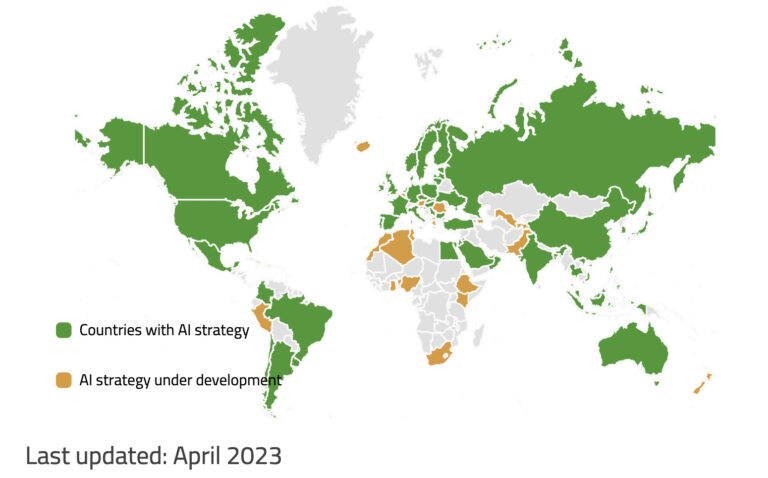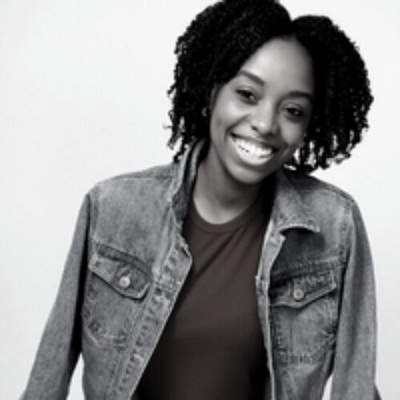From generating music and visual art to writing and design, artificial intelligence (AI) has opened up a new world of possibilities for artists and creative professionals. Yet do the benefits outweigh the potential drawbacks, and at what cost? In this piece, I’ll be sharing insights and perspectives from artists and creatives across disciplines about their opinions on AI. Please note that the opinions expressed by the individuals are subjective and represent only a small sample of the larger population of artists and creatives.
AI is an amazing tool that is helping to level the playing field for so many neurodivergent people. For artists and creatives, it helps us do the work that we stumble over… the administrivia of it all.
“Think of AI as a way to brainstorm with someone. It’s not there to do the work for you. It’s to help you do the work faster. It’s the same thing as the beginning of the Internet, the world isn’t over… It’s changing.” – Jazelle Foster, Owner of Creatives Meet Marketing and actor
“From the voice actor’s side, these are my thoughts. It’s scary, especially because so many AI companies are STEALING our voices quietly. I think for newer voice actors or middle-tier and lower working VO’s it could be detrimental. A lot of companies will opt for faster and cheaper AI. That said, I think actual human actors could become considered more of a premium service for that reason, the best companies and jobs would hire humans. Plus, many big companies are steering WAY clear of AI for fear of getting sued later, so that’s a comfort. Basically, AI isn’t going anywhere and it’s only going to get better, but that’s why we as actors need to demand our worth. Petition and ask for protections from the unions, DON’T audition for or take TTS or AI jobs (or you’ll be taking a single paycheck to give your talent over to bots who are gonna use that technology to take all our jobs lol). Trust in humanity, because at the end of the day…AI can’t REALLY be directed. They don’t have emotional intelligence and many companies won’t want to support AI over human artists. It’s a double-edged sword, for sure.” – Morgan Meadows, Award-winning voice actor
“As a musical theatre writer, half the work is just applying for opportunities. There’s an insane amount of paperwork — cover letters, synopses, artistic statements, bios etc. The word counts and prompts often vary, and it’s a thankless task to wade through mountains of forms, knowing you’re unlikely even to receive a reply. ChatGPT is wonderful at producing a concise template that can be tweaked and sent off. I estimate it saves 50% of your time. I also use ChatGPT as an interlocutor to bounce creative ideas off. It’s (thankfully) not yet at a stage where it can produce fantastic creative ideas (much less dialogue or lyrics) from scratch, but it’s a useful second “brain” that helps get your imagination working.” – Tim Jenkins*, musical theatre writer*renamed for anonymity
“A lot of creatives and photographers are complaining about AI from a place of fear and I don’t think that is helpful for them nor the conversation. They’re becoming self-made victims. I think as individual creators we have to move with the tide in terms of where this new technology is taking us. We need to find ways to make it work for us. We need to adjust our business models to incorporate it and keep up with the changing times. We can either sink or we can swim. I compare it to the creative digital revolution in the early to mid-2000s when everything shifted to digital. Of course, there are going to be casualties, newspapers are one of the casualties of the digital age. However, rather than complaining that newspapers are gone, it’s important to understand where people are now writing and for what and what that new landscape looks like. I’ve decided to approach AI from a point of curiosity. I’m asking myself: ‘How can I use AI to deepen my creativity? How can I use it as a tool that works for me? And where are industry trends going in this regard?’ – Lillian Simmons*, Hollywood photographer(*renamed for anonymity)
For the past month, I’ve been using AI technology to transform my long-winded musings into succinct, active paragraphs. This has been particularly helpful when writing essays with a target word count. However, AI technology cannot replace creativity itself.
The most indispensable aspect of a creative person has always been their voice. It cannot be replicated or predicted by a bot. In these new exciting times where AI can aid us in efficiently pitching and packaging our ideas, our distinct vantage point will become more valuable than ever.
“In regards to AI technology making movies, I am vehemently against this idea. Machines do not have souls. I struggle with the idea of a machine teaching us what to value. If a machine is making a movie, it’s being done for the sake of efficiency. And while I value efficiency, it is not the highest value in my life. It has to be subservient to other, more important values that often clash with commerce. Society needs dissenters. Art is the main context for this dissent. I don’t see machines offering much of that.” – Erin Brown Thomas, filmmaker
“I’d heard about ChatGPT briefly but didn’t know what it was. After I saw another content creator develop songs with lyrics generated by ChatGPT, I tried it out for myself. As a seasoned marketing expert and actress, I’m always eager to find new unique solutions to amplify my career and make stronger industry connections. ChatGPT became more than just a tool for me when I started using it, it helped me enjoy the path of critical thinking again and problem-solving. It streamlined noise and answered questions I’d been working on for months. I was determined to create something using ChatGPT for actors because I saw how many people were creating ‘ChatGPT for this’ and ‘that’ but none of it was directed towards helping creatives with business solutions – and a lightbulb went off. My social media guide was birthed from a ‘ChatGPT For Actors 101’ course, where I was making the social media chapter too big and decided to make a full-blown guide. Now I have a few ‘ChatGPT For Actors’ courses, I’m so happy to be able to help my peers and it’s given me new life in helping my own careers.” – Jordan Elizabeth Gelber, actress and marketing expert
“I’ve been doing some research on the development of AI and how it affects us as creatives and African creatives. I’m still in the process of fully understanding it. The future keeps bringing new developments and technology – we can’t avoid it. It seems that AI is here to stay, and we must learn to accept it. However, I am more concerned than excited about its implications, especially regarding copyright issues and ownership of ideas. I have yet to try it out myself*.”–Joe Njagu, award-winning filmmaker
*While the US currently leads the AI race, according to a report by NGO, DiploFoundation, “Africa has been slow in the uptake of artificial intelligence (AI) technologies, for a variety of reasons, from infrastructure challenges to limited financial resources.” and “Three African countries have made efforts to advance policy documents dedicated specifically to AI: Mauritius, Egypt, and Kenya”. As of writing this ChatGPT is not yet available in Zimbabwe and AI-transcription software like Otter.ai and Descript do not support African languages as yet. This lack of support for African languages in AI technology highlights the need for more investment in language technology research and development, particularly in languages that are spoken by underrepresented communities. By developing AI tools that can understand and generate text in a wider range of languages, we can help to ensure that everyone has equal access to the potential benefits of AI technology.

Overall the impact of AI technology on the creative industry is complex and multifaceted, and different applications of it may have different implications across artistic disciplines and continents.
…
Thanks for reading CircusTalk.News.
Support us by registering and subscribing!
FOR UNLIMITED ACCESS TO ALL NEWS CONTENT + JOB LISTING.
Do you have a story to share? Submit your news story, article or press release.

